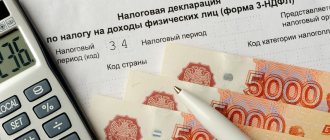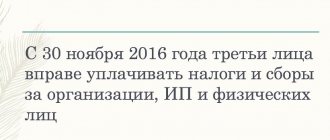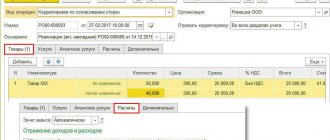Payment of taxes is a mandatory type of payment for all citizens who own a certain type of property.
Dear readers! Our articles talk about typical ways to resolve legal issues, but each case is unique. If you want to find out how to solve your particular problem, please use the online consultant form on the right or call. It's fast and free!
However, payments may not always arrive on time, so many citizens are wondering how to find out what the tax is for and when a certain type of payment must be made.
How can an individual pay tax?
- Through the bank, by document index or details.
- Through the website of the Federal Tax Service of Russia, through the special service “Payment of taxes and duties”.
- Through your personal account on the website of the Federal Tax Service of Russia.
- By paying a single tax payment of an individual. In this case, the tax authorities themselves will apply the amount paid to the debt for payment of specific taxes. Thus, you can only pay Transport Tax, Land Tax, and Personal Property Tax. The main thing is that the amount paid covers the total tax debt. A single tax payment of an individual can be made through the Federal Tax Service “Pay Taxes” service.
- Through the MFC, where it is possible to accept payment of taxes and transfer them to the budget
How to check taxes using TIN or UIN?
In order to check tax accruals and debts, you will need the number of one of the following documents:
- TIN - Taxpayer Identification Number
- SNILS - Insurance number of an individual personal account in the Pension Fund of Russia (green plastic card)
- UIN or document index - number of the Federal Tax Service notification about accrued taxes
Tax verification is carried out using the document number entered in the appropriate fields of the search form. You can check your taxes by entering both documents at the same time. The SNILS number is entered without hyphens or spaces
, only numbers.
Using the TIN or SNILS, you can only find out tax arrears, i.e., assessments that were not paid within the period established by law. Current tax accruals can only be found by UIN.
After entering data into the fields of the search form, click the “SEARCH TAXES” button. Tax verification may take a long time, please wait for the result.
If taxes are found as a result of the audit, detailed information will be provided: date, UIN, type of tax, amount payable, etc. Otherwise, a message will appear stating that nothing was found.
Personal income tax (NDFL)
The personal income tax return (3-NDFL) is submitted no later than April 30 of the year
, following the expired tax period (clause 1 of article 229 of the Tax Code of the Russian Federation (TC RF))[ 1 ].
Personal income tax is paid at the taxpayer’s place of residence no later than July 15 of the year following the expired tax period (clause 4 of Article 228 of the Tax Code of the Russian Federation).
In some cases, individuals who are not individual entrepreneurs must themselves submit a tax return for personal income tax (NDFL) and pay tax to the budget. This situation arises, for example, if an individual receives dividends from a foreign organization.
Deadlines for payment of other taxes and insurance contributions
| Tax | Date (articles of the Tax Code of the Russian Federation) | Note |
| VAT | 25.04, 25.07, 25.10, 25.01 (Article 174) of the current year | period – quarter |
| excise taxes | 25.01, 25.02, 25.03, 25.04, 25.05, 25.06, 25.07, 25.08, 25.09, 25.20, 25.11, 25.12 (Article 204) of the current year | period – month |
| Personal income tax (organizations) | when paying income (Article 226) | |
| at a profit | 28.03 (Article 287) of the next year | advances – until 28.01, 28.02, 28.03, 28.04, 28.05, 28.06, 28.07, 28.08, 28.09, 28.10, 28.11, 28.12. |
| water | 20.04, 20.07, 20.10, 20.01 (Article 333.14) of the current year | |
| State duty | when applying for a service (Article 333.18) | |
| MET | 25.01, 25.02, 25.03, 25.04, 25.05, 25.06, 25.07, 25.08, 25.09, 25.10, 25.11, 25.12 (Article 344) of the current year | period - month |
| Unified agricultural tax | 31.03 (Article 346.9) of the next year | advances – July 25, January |
| simplified tax system | 31.03 for legal entities, 30.04 for individual entrepreneurs (Article 346.21) of the next year | advances – 25.04, 25.07, 25.10, 25.01 |
| UTII | 25.04, 25.07, 25.20, 25.01 (Article 346.32) of the current year |
Order a free legal consultation
Similar articles
Taxation of gift deeds 30.10.2019
Tax benefits for pensioners 15.12.2019
Is it possible to use acquiring without a cash register: connecting acquiring without an online cash register 08.10.2019
Transport tax
Transport tax is payable by individual taxpayers no later than December 1 of the year
following the expired tax period (clause 1 of Article 363 of the Tax Code of the Russian Federation).
Taxpayers - individuals pay transport tax on the basis of a tax notice sent by the tax authority (clause 3 of Article 363 of the Tax Code of the Russian Federation).
Taxpayers are persons who, in accordance with the legislation of the Russian Federation, have registered vehicles that are recognized as an object of taxation in accordance with Article 358 of this Code, unless otherwise provided by this article (Article 357 of the Tax Code of the Russian Federation).
The objects of taxation are cars, motorcycles, scooters, buses and other self-propelled machines and mechanisms on pneumatic and caterpillar tracks, airplanes, helicopters, motor ships, yachts, sailing ships, boats, snowmobiles, motor sleighs, motor boats, jet skis, non-self-propelled (towed vessels) and other water and air vehicles (hereinafter in this chapter - vehicles) registered in the prescribed manner in accordance with the legislation of the Russian Federation (Article 358 of the Tax Code of the Russian Federation).
What to remember
- If you receive income for which your employer does not pay deductions, you must declare this income by April 30 and pay tax by July 15.
- Before declaring your income, check whether it is necessary to do so and whether it is taxable. There are many concessions in the laws.
- If you own a home, car or land, you need to pay property taxes. This must be done before December 1st.
- The state has provided many benefits for property taxes. Check to see if you are on the list of those who have had their burden lightened. If yes, you should notify the Federal Tax Service about this.
- If you don't pay taxes, you could end up giving away a lot more money than you "saved."
Property tax for individuals
Property tax for individuals is payable by taxpayers no later than December 1 of the year
following the expired tax period (clause 1 of Article 409 of the Tax Code of the Russian Federation).
The tax is paid at the location of the object of taxation on the basis of a tax notice sent to the taxpayer by the tax authority (clause 2 of Article 409 of the Tax Code of the Russian Federation).
Taxpayers are individuals who have the right of ownership of property recognized as an object of taxation in accordance with Article 401 of this Code (Article 400 of the Tax Code of the Russian Federation).
The object of taxation is the following property located within a municipal entity (federal city of Moscow, St. Petersburg or Sevastopol) (Article 401 of the Tax Code of the Russian Federation):
- House;
- living space (apartment, room);
- garage, parking place;
- single real estate complex;
- unfinished construction project;
- other building, structure, structure, premises.
Results
Tax legislation provides for the exemption of personal income from personal income tax in a number of cases. An exhaustive list of such cases is given in Art. 217 (for Russians) and Art. 215 (for foreign citizens) of the Tax Code. Most of the items for which the income of Russians is exempt are related to the social orientation of this income (state benefits, compensation payments, pensions, payments for children, financial assistance). The exemption also applies to the income of peasant and personal subsidiary plots, income from the sale of forest products and hunting trophies.
From 2021, personal income tax will be assessed in a new way when selling real estate. The time limits for this property to be owned by the sellers have been changed. In addition, the sale price of property has been linked to its cadastral value for the situation of selling an object at a price lower than the cadastral valuation, and the constituent entities of the Russian Federation have the right to reduce the main deadline and reduce the coefficient involved in calculating the tax base from the cadastral value.
Sources:
- Tax Code of the Russian Federation
- Labor Code of the Russian Federation
- Federal Law of December 30, 2015 No. 422-FZ
- Federal Law of November 24, 1995 No. 181-FZ
You can find more complete information on the topic in ConsultantPlus. Free trial access to the system for 2 days.
Land tax
Land tax is payable by individual taxpayers no later than December 1 of the year
following the expired tax period (clause 1 of Article 397 of the Tax Code of the Russian Federation).
Taxpayers - individuals pay tax on the basis of a tax notice sent by the tax authority (clause 4 of Article 397 of the Tax Code of the Russian Federation).
Taxpayers are organizations and individuals who own land plots recognized as an object of taxation in accordance with Article 389 of this Code, on the right of ownership, the right of permanent (perpetual) use or the right of lifelong inheritable possession, unless otherwise established by this paragraph (clause 1 of Art. 388 Tax Code of the Russian Federation).
The object of taxation is land plots located within the municipality (federal cities of Moscow, St. Petersburg and Sevastopol), on the territory of which the tax was introduced (clause 1 of Article 389 of the Tax Code of the Russian Federation).
What happens if you don't pay taxes
Nothing good. If you do not file a tax return when required, the fine will be 5% of the Tax Code of the Russian Federation Article 119 of the unpaid tax amount for each month of delay, but not less than 1 thousand rubles and not more than 30% of the amount owed. For each day of delay in tax payments, you will have to pay a penalty - 1/300 of the Central Bank refinancing rate. Now it is 0.02%.
Finally, you may be fined for tax evasion by 20% of the Tax Code of the Russian Federation Article 122. Non-payment or incomplete payment of tax amounts. And if you can prove that you did it intentionally, the sanctions will be 40%.
All financial sanctions are in addition to taxes, which you still have to pay.
If over the last three years you have owed at least 900 thousand (and this is more than 10% of all your taxes), you may be prosecuted under the Criminal Code of the Russian Federation Article 198. Evasion of an individual from paying taxes, fees and (or) an individual paying insurance premiums from paying liability insurance premiums. This is a fine of 100–300 thousand rubles (sometimes income for a period of 18 months to three years), or up to a year of forced labor, or up to six months of arrest, or up to a year in prison.
Tax notice
The tax authority calculates tax based on the data it has on the property of individuals
:
- For transport tax (clause 3 of Article 363 of the Tax Code of the Russian Federation);
- For land tax (clause 4 of article 397 of the Tax Code of the Russian Federation);
- For property tax for individuals (Article 408 of the Tax Code of the Russian Federation).
In this case, the tax authority sends the taxpayer a tax notice, on the basis of which the tax is paid.
The tax notice must be sent by the tax authority to the taxpayer no later than 30 days before the payment deadline (Clause 2 of Article 52 of the Tax Code of the Russian Federation). Since the tax payment deadline is December 1st
, then the tax notice must be sent to the taxpayer
no later than November 1
.
If a tax notice is not received by November 1, the Federal Tax Service of Russia recommends one of three options:
- Contact the tax office. You can contact any tax office (with the exception of interregional tax inspectorates and inspectorates for centralized data processing).
- Submit information through the “Taxpayer Personal Account”.
- Contact the tax office using the Internet service “Contact the Federal Tax Service of Russia.”
If you have not resolved the issue of receiving a tax notice by the tax payment deadline, you can take advantage of the opportunity to pay the Unified Tax Payment of an individual in order to avoid paying penalties for late payment of tax. True, in this case you will not have the exact amount of tax debt. But you can use last year’s tax amounts as a basis.
The obligation of individuals to notify the tax authorities about their real estate and vehicles.
An obligation has been established for individuals to notify tax authorities about their real estate and vehicles. Such an obligation is established only if the individual has not received a tax notice with information about the purchased object.
VAT and excise taxes
Here the question may arise: what do these taxes have to do with individuals if they are paid by businessmen?
Indeed, formally this is so. Not a single “ordinary” citizen takes a payment slip to the bank with the purpose of payment “VAT transfer”.
But here it is important to understand that VAT and excise taxes are indirect taxes. This means that their amount is included in the price of goods or services, i.e. In the end, end consumers pay for everything.
Almost all goods and services sold in the Russian Federation are subject to VAT.
There are few exceptions: these are certain medical goods and services, passenger transportation, meals in school canteens, etc.
The VAT rate is generally 20%, and for some preferential categories (food, children's goods, etc.) a preferential 10% rate is applied.
Therefore, we can say that anyone pays VAT every time they go to a store or order any service.
And if the purchase relates to excisable goods (alcohol, tobacco, gasoline, vehicles), then excise tax is added to the VAT in its price. Excise tax rates depend on the type of product and are a fixed amount in rubles per natural unit (liter, ton, piece) or per unit of engine power.
Right to property deduction
Russian legislation obliges citizens not only to pay taxes, but also gives them the right to a property deduction when purchasing real estate. Conditions for receiving the main deduction - In addition, to purchase housing, you must spend your own (and/or borrowed) resources, be a tax resident of our country and receive a “white” salary. A Russian has the right to apply for a deduction once in his life. When confirming the right to it, the limit on the amount that a real estate buyer can count on is 260 thousand rubles.
Until 2014, the opportunity to return part of the amount paid for housing was provided in relation to one apartment or house, therefore the deduction limits also applied only to one premises. When deputies amended the regulations, residents of the Russian Federation acquired the right to receive a deduction for all housing purchased for themselves. When residents pay less than two million for their first apartment, the remaining deduction can be transferred to the next real estate purchased with their own money.
If housing was purchased with a mortgage (using funds from another targeted loan), then consumers are entitled to a return of the “interest” deduction, but this benefit only applies to the purchase of one property. However, there is an exception here, noted by the Ministry of Finance and the Federal Tax Service in letter No. BS-4-11/8666 dated May 21, 2015: if the first apartment was purchased before 01/01/2014 and the main deduction was claimed for this property, then when registering a second house in After the specified date, citizens receive the opportunity to return the interest.
When determining the “mortgage” deduction, the amount varies depending on the period of purchase of the home. The date - the limiter is the same - 01/01/2014.
- By purchasing a property before this date, you can get back all the interest actually paid.
- When the apartment is purchased later, the amount of interest is limited to 3 million and the opportunity to return 390 thousand rubles from them.
To get a refund of interest, you must first return part of the money spent on the purchase of the property. When the main deduction is exhausted, you can apply for a “mortgage”, meaning that the state only returns taxes withheld for the three years preceding the date of application.
There are also some nuances when returning personal income tax, when housing was purchased as joint property (real estate can belong to both spouses or to one - the number of owners does not affect in this case) on borrowed funds. After 2014, the right to a “mortgage” deduction can be exercised by both parties to the transaction (in total this is 6 million rubles, and 780 thousand returned funds). Married people can divide this amount among themselves as they wish, but be sure to enter into a written agreement, which can be changed annually until the total interest deduction is exhausted.
Table 1. Examples of payments
| Example 1 | Example 2 | Example 3 |
| The living space was purchased for 3 million rubles. The spouse will declare 2 million, and the spouse - a million, or vice versa. They can split the deduction equally. The government will still return 390 thousand rubles to the family. | 4 million was paid for housing. Both husband and wife have every chance of receiving a personal income tax refund for two in the amount of 520 thousand rubles. | The family paid 2 million rubles for the apartment. One of the home owners can claim the entire deduction now, and the second - when purchasing another property. Or both will now declare 1 million each, and another one - when they build the house. In any case, you can return 260 thousand rubles from this property and the same amount later. |
If an individual sold an apartment he previously purchased without claiming a deduction, then the possibility of receiving it remains.
What is the amount of personal income tax?
The amount of personal income tax depends on the tax rate (from 9 to 35%) and the tax base (the amount that will be taxed). In the vast majority of cases, the personal income tax rate is set at 13%.
Why do they take 9% personal income tax?
The 9% rate is almost never used (the most current information is the application of such a rate for income received from dividends before 2015).
Why do they take 35% personal income tax?
The following income is subject to such a high tax rate:
- the cost of any winnings and prizes received in competitions, games and other events for the purpose of advertising goods, works and services, insofar as they exceed the established amounts;
- interest income on deposits in banks in terms of excess of the established amounts;
- the amount of savings on interest when taxpayers receive borrowed (credit) funds in excess of the established amounts;
- in the form of payment for the use of funds of members of a credit consumer cooperative (shareholders), as well as interest for the use by an agricultural credit consumer cooperative of funds raised in the form of loans from members of an agricultural credit consumer cooperative or associated members of an agricultural credit consumer cooperative, insofar as they exceed the established amounts.
Now let's move on to the most interesting part of the article...
Taxation of individuals is regulated by the Tax Code of the Russian Federation
in terms of federal taxes and regional laws in terms of regional and municipal taxes.
Tax Code of the Russian Federation
The basis of Russian legislation regulating the taxation of individuals and legal entities in the Russian Federation is the Tax Code of the Russian Federation.
Regarding individuals, and in this material we will only talk about taxation of individuals, the Tax Code of the Russian Federation establishes:
- types of taxes that individuals must pay in the Russian Federation;
- the grounds for the occurrence and procedure for fulfilling obligations to pay taxes and fees;
- forms and methods of tax control;
- liability for tax offenses;
- procedure for appealing acts of tax authorities and actions of their officials.
The Tax Code of the Russian Federation consists of two parts:
- the first part of the Tax Code is devoted to establishing general principles of taxation, including for individuals;
- the second part of the Tax Code has 4 sections, including 18 chapters, divided into 374 articles (some of them are not currently in effect), regulating certain types of taxes.
During the time that has passed since the adoption of the second part of the Tax Code of the Russian Federation, many changes have been made to it. At the same time, chapters and articles of the second part of the Tax Code did not come into force immediately, but sequentially during 2001–2005.
Taxes are the main source of revenue generation for the Russian Federation budget. Taxes on individuals also play an important role in this.
Types of taxes from individuals
In the Russian tax system, there are 3 groups of taxes on individuals, depending on the government body that collects the tax from individuals and uses the funds from this tax:
- federal taxes;
- regional taxes and
- local taxes and fees.
Federal taxes for individuals
Federal taxes on individuals include:
- personal income tax (NDFL) or, as it is also called, income tax.
Regional taxes for individuals
Regional taxes on individuals include:
- transport tax for individuals.
Local taxes for individuals
Local taxes on individuals include:
- property tax for individuals;
- land tax.
Insurance fees for individuals
Let us briefly consider the features of taxation for each of these types of taxes from individuals.
Personal income tax (NDFL)
Personal income tax is regulated by Chapter 23 “Individual Income Tax” of the Tax Code of the Russian Federation.
Personal income tax is paid by individuals who are residents of the Russian Federation, and by individuals who receive income from sources in the Russian Federation, but who are not its residents.
Individuals staying in the Russian Federation for more than 183 consecutive days are recognized as tax residents. Any income received by them (if the business is not registered) is subject to personal income tax (NDFL) in the amount of 9/13/15/30/35%.
For details, see the material “Personal Income Tax (Income Tax) Personal Income Tax. Tax rate".
The tax base includes all types of income that were received:
- both in cash and
- in natural form.
They can also include income in the form of material benefits. For each type of income, the tax base is calculated separately, since there are different tax rates for different incomes.
The tax base may be reduced due to:
- standard tax deductions,
- social tax deductions and
- property tax deductions, and for some
- and thanks to professional tax deductions.
Transport tax for individuals
Transport tax for individuals is regulated by Chapter 28 “Transport Tax” of the Tax Code of the Russian Federation and is a regional tax.
Transport tax from individuals – contributions collected annually from owners of vehicles listed in Article 358 of the Tax Code of the Russian Federation, calculated on the basis of:
- engine power,
- total static thrust,
- tonnage or
- vehicle units.
The procedure for calculating transport tax from individuals.
For individuals, transport tax is calculated annually by employees of territorial tax inspectorates.
Data from the traffic police, as well as other information from registration services, are used as the basis for calculations.
The legislator has established differentiated rates. The lowest coefficient - 1 - is approved for low-power vehicles (motor scooters, motorcycles) up to 20 horsepower.
Air and water transport are the most expensive for owners - a coefficient of up to 50, when measured in horsepower, and 200 for transport, measured in units. The rates given in Article 361 of the Tax Code of the Russian Federation can be adjusted by regional authorities ( increased or reduced up to 10 times ).
Moreover, constituent entities of the Russian Federation have the right to supplement the differentiation taking into account the year of manufacture, environmental friendliness and operating time of vehicles.
The accrual of transport tax from individuals ceases from the moment of alienation of the vehicle. The taxpayer can clarify the data or request a recalculation of the accrued amounts of transport tax by application. He must attach documentary evidence of termination of ownership rights (agreement) to the vehicle.
Features of payment of transport tax by individuals
Individuals are required to pay transport tax within the period specified on the receipt. The payment date should not be set earlier than November 1 of the year following the billing period.
Representatives of the territorial Federal Tax Service of the Russian Federation send the owner a standard notification form, in which they indicate:
- taxable period;
- the amount of transport tax;
- vehicle with registration plate;
- deadline for payment of transport tax;
- presence of arrears or overpayments;
- settlement details for transferring transport tax funds.
You can obtain receipts for payment of transport tax:
- on the official website of the tax office,
- or by contacting the tax office in person,
- or through the taxpayer’s personal account.
Transport tax rates for individuals in Moscow in 2021.
At the moment there is no information about changes in rates up or down compared to 2021. However, due to the fact that the tax will only need to be paid in 2021, possible adjustments cannot be ruled out.
At the moment, the following vehicle tax rates are in effect in Moscow, depending on engine horsepower:.
Passenger car engine power | Tax based on one hp. |
| Less than 100 horsepower | 12 rubles |
| from 100 to 125 horsepower | 25 rubles |
| from 125 to 150 horsepower | 35 rubles |
| from 150 to 175 horsepower | 45 rubles |
| from 175 to 200 horsepower | 50 rubles |
| from 200 to 225 horsepower | 65 rubles |
| from 225 to 250 horsepower | 75 rubles |
| more than 250 horsepower | 150 rubles |
Transport tax for expensive cars
If you own a car costing more than 3 million rubles, then you will have to pay a “luxury tax”, that is, in addition to the transport tax based on power, an increasing factor is applied for expensive cars.
Every year, the Ministry of Industry and Trade of the Russian Federation issues a list of cars that fall under the concept of expensive, and therefore subject to taxation at a higher rate.
If a car is on the list, then the following coefficients are applied to it depending on their price and age.
Cost and age of the car | Coefficient |
| From 3 to 5 million rubles. 2-3 years from release | 1,1 |
| From 3 to 5 million rubles. 1-2 years from release | 1,3 |
| From 3 to 5 million rubles. less than 1 year from date of issue | 1,5 |
| From 5 to 10 million rubles. less than 5 years from date of issue | 2 |
| From 10 to 15 million rubles. less than 5 years from date of issue | 3 |
Property tax for individuals
Personal property tax is the responsibility of local authorities.
Until January 1, 2015, the procedure for taxing the property of individuals was regulated by the Law of the Russian Federation of December 9, 1991 No. 2003-1 “On taxes on property of individuals.”
In connection with the adoption of Federal Law No. 284-FZ dated October 4, 2014 “On amending Articles 12 and 85 of Part One and Part Two of the Tax Code of the Russian Federation and invalidating the Law of the Russian Federation No. 2003-1 dated December 9, 1991 “On Property Taxes” individuals" from 01.01.2015, Chapter 32 "Property tax for individuals" of the Tax Code of the Russian Federation came into force.
Thus, the procedure for calculating property tax for individuals since 2015 is carried out taking into account the provisions of Chapter 32 “Property tax for individuals” of the Tax Code. For details, see the material “Property tax for individuals: Property tax benefits.”
Taxpayers of property tax for individuals in accordance with Chapter 32 of the Tax Code are individuals who have the right of ownership of property recognized as an object of taxation.
(Article 400 “Taxpayers” and Article 401 “Object of Taxation” of the Tax Code).
Article 407 “Tax benefits” of the Tax Code, which regulates the procedure for providing benefits for the property tax of individuals, provides for categories of citizens who are exempt from paying this tax, including pensioners receiving pensions assigned in the manner established by pension legislation.
The provisions of this article provide for the provision of complete exemption from payment of property tax for individuals in relation to one piece of real estate for the following types at the choice of the taxpayer:
- apartment or room;
- House;
- premises or structures specified in subparagraph 14 of paragraph 1 of Article 407 of the Tax Code;
- economic building or structure specified in subparagraph 15 of paragraph 1 of Article 407 of the Tax Code;
- garage or parking space.
In accordance with paragraph 2 of Article 401 of the Tax Code, residential buildings located on land plots provided for personal subsidiary plots, dacha farming, vegetable gardening, gardening, and individual housing construction are classified as residential buildings.
That is, a citizen who has the right to apply a tax break on the property tax of individuals, since 2015, has the right to be exempt from paying this tax in full only, for example, in relation to one residential building, of his choice, regardless of the number residential buildings owned by him.
Information about the selected taxable items in respect of which a tax benefit is expected to be received is submitted by the taxpayer to the tax office of his choice before November 1 of the year, which is the tax period from which the tax benefit is applied to these items.
In accordance with the provisions of Chapter 32 of the Tax Code, when establishing a property tax for individuals, regulatory legal acts of representative bodies of municipalities may also establish additional tax benefits not provided for in Article 407 of the Tax Code, the grounds and procedure for their application by taxpayers.
Land tax for individuals
Land tax for individuals is regulated by Chapter 31 “Land Tax”, Article 15 “Local Taxes and Fees” of the Tax Code of the Russian Federation and is a local tax.
Land tax is required to be paid by all individuals who own land plots. The land tax rate is determined in each municipality on the basis of the basic coefficients established in the Tax Code of the Russian Federation.
The procedure for calculating land tax for individuals
Land tax is charged to individuals only on land plots located within the boundaries of the municipality. If a citizen owns several plots of land, he is presented with amounts based on the rules in force at the location of each.
are not subject to land tax.
Lands on which natural water bodies classified as part of the water fund are located are not included
The basis for calculating land tax for individuals is the cadastral value of the land plot, determined in accordance with the requirements of the law.
In light of recent changes, this cost has increased significantly . The assessment of the cadastral value of a land plot depends on the location, area, market price level, fertility and other factors. The approved figure may be challenged by the taxpayer, subject to the presentation of an independent assessment report or other documents indicating a lower value.
When establishing shared ownership of a land plot, each citizen is obliged to pay a portion of the tax equal to the amount of his rights. Under the general joint regime, the distribution of responsibilities is carried out in equal shares.
Minors or incapacitated citizens are also payers of land tax for individuals, for whom the burden of paying the tax is borne by guardians or parents.
Land tax rate for individuals and tax period
The calculation of land tax amounts payable by individuals is carried out by the territorial Federal Tax Service of the Russian Federation on the basis of approved rates. The period for accruals is the calendar year.
Tax officials apply the following rates:
- 0.3% – agricultural lands, areas of housing, communications, gardening, lands for defense, customs needs, security;
- 1.5% - all other areas.
Municipalities have the authority to adjust the specified land tax rates for individuals.
The deadline for depositing accrued amounts for individuals cannot be set earlier than November 1 of the year following the settlement year.
Representatives of indigenous peoples of the North, Far East and Siberia, recognized as small in number, are not required to pay land tax The category of beneficiaries also includes residents of these communities living on lands used to preserve the traditional way of life, an endangered type of economic activity.
Insurance fees (contributions) from individuals
On January 1, 2010, the chapter of the Tax Code of the Russian Federation on the unified social tax lost force. The legislator introduced a new taxation system called insurance fees.
Who is the taxpayer for insurance fees?
The obligation to pay insurance premiums arises:
- from employers from amounts paid to employees;
- for individual entrepreneurs (fixed rates).
Insurance premium rates in 2021
In 2021, insurance premium rates will remain at the same level. The State Duma decided not to raise rates. The total insurance premium rate in 2021 will be 30%.
Table. Insurance premium rates in 2019.
Insurance premiums | Rate in 2021 |
| Contributions to the Pension Fund (for compulsory pension insurance) | 22 |
| Contributions to the FFOMS (for compulsory health insurance) | 5,1 |
| Contributions to the Social Insurance Fund (for compulsory social insurance in case of temporary disability and in connection with maternity) | 2,9 |
| Contributions to the Pension Fund from payments in excess of the limit for calculating contributions to the Pension Fund | 10* |
* - at this rate only payments that exceed the maximum limit for the base for insurance premiums are taxed (clause 4 of article 8 and clause 1 of article 58.2 of Law No. 212-FZ).
If you have any questions about the violation of your rights, or you find yourself in a difficult life situation, then an online duty lawyer is ready to advise you on this issue for free.
TAXES AND TAX DEDUCTIONS
If you are a real estate seller
If you are a real estate seller, then after the transaction is completed, the citizen will pay 13% tax on the amount received, and the amount paid to the treasury depends on the period of purchase of the living space:
- If the owner received the right to own the property before January 1, 2016, he will pay tax on the original cost specified in the agreement.
- If a Russian has acquired the opportunity to dispose of an apartment after the above date, in these circumstances the duty is calculated from whichever is higher: the value included in the purchase and sale agreement, or 70% of the cadastral price of the real estate (in some regions of the country the coefficients may be different) .
The seller is exempt from tax in the following cases:
- When the apartment was in the possession of the seller for more than three years, and this rule, in accordance with Article 217.1 of the Tax Code of Russia, is valid for real estate acquired before 01/01/2016, or if it was donated by the so-called. “interdependent people” (parents, brothers, sisters, children); housing was acquired through privatization or by inheritance; Real estate received under a lifelong maintenance agreement with a dependent is not taxed, when a citizen supports its former owner in order to receive living space. Ownership must be documented.
- If a Russian has owned a residential property for more than five years.
- When the price of real estate does not exceed one million rubles (this privilege can be used by Russian citizens once a year).
Also, Russian citizens can use several methods that reduce the tax base (we wrote about them in the section about the exchange of housing, which is equivalent to the purchase and sale).
Let us remind you that the first method is to receive a “million dollar” deduction. This benefit has a limit: when a person sells two apartments in a year, he will receive a deduction for both homes, and not for each separately. If the seller has the necessary papers for at least one object, then it is possible to realize a tax benefit on it in the amount of confirmed costs, on the second - one million rubles.
The second method is to include expenses for treatment and education in the declaration, provided that these expenses were made in the year of sale of real estate and they are confirmed by checks, receipts, etc. Under such circumstances, you can exercise your right to a social deduction in the manner specified by law limits (return up to 15,600 rubles), but not by returning 13%, but by reducing the amount of future income.
The third scheme works if the property purchased and subsequently sold at a higher price by a citizen is more expensive than a million, it is possible to pay taxes not on the entire cost of housing, but only on the profit from the sale (according to paragraph 2 of paragraph 2 of Article 220 of the Tax Code of the Russian Federation).
Example: you purchased an apartment on the primary housing market for 6 million rubles, renovated it and sold it a couple of years later for 8 million rubles. If you use the “millionth” tax refund, then in this case you will pay the fee on 7 million (910 thousand rubles). It is easier to reduce the tax base by the amount spent on the purchase of sold housing: it is indicated in the receipt held by the parties to the transaction, or is present in the payment receipt for non-cash payments.
In this case, the tax base will be 2 million rubles, and the tax itself will be 260 thousand rubles
The fourth method is a tax refund with a deduction that is due to the buyer when purchasing a new residential property. If in the same year an individual sold housing and bought another without using the property benefit in any way, then he can reduce his profit from the sale of property by the maximum tax deduction for the purchase of this living space (Letter of the Ministry of Finance dated February 11, 2021 No. 03-04- 05/7154). The deduction limit is 2 million rubles.
Example: you inherited a house and sold it for 4 million rubles, then purchased a new one for five, you have not previously claimed the benefit. Income can be cut in half and the tax levy will be 130 thousand rubles.
Example: you purchased a home for 3 million in 2014, sold it a couple of years later for 4 million, and used the money received to buy a house for 6 million. You have not taken advantage of the deduction until this moment. Thus, it is possible to reduce the profit received by the initial cost of housing, reducing the tax base to one million, and then apply the maximum amount of the main deduction. As a result, you will be able to completely cover your entire tax, while also preserving the unspent million of property deductions.
The fifth method (used when housing is purchased into common ownership and then sold) is the sale of housing under different purchase and sale agreements. After purchasing a residential property after January 1, 2014, any of its owners has the opportunity to use the maximum amount of property deduction (in total, the spouses get 4 million rubles).
Example: your family has a living space that was sold for 4 million. 1) If you sell the housing by concluding only one contract with the buyer, you will be able to use a deduction of 2 million, and then the tax fee will be 260 thousand rubles. 2) if the shares living space will be sold under various agreements, then in this development of events any owner can take advantage of the largest amount of deduction, because from the point of view of the Federal Tax Service, this is the sale of two real estate properties. Together with your spouse, you will file declarations for the past year, indicating the profit from the sale of your own part - one million each, immediately declaring “millions of deductions”, then no one will pay taxes.
These methods work both when selling “resales” and when selling premises in an unfinished new building under an assignment of claim agreement.
Please note that an application to the tax office is submitted only in two cases: when the property was purchased before 2021 and was owned for less than 36 months; it was purchased after 2016 and is being sold before the expiration of the five-year period.
How to find out the tax amount through the government services website
Take advantage of the electronic state service for informing tax payers. It is available exclusively to those users who are authorized on the official website. To do this, the person must be registered. If you don't have an account yet, then you need to go through the registration process.
On the government services portal, you can both obtain up-to-date information on accrued penalties and taxes, and instantly pay off your debt using a bank card. The site has step-by-step instructions that will help you go through all the stages quickly and without errors.
There is also an opportunity to find out why the tax was charged according to the TIN. It is provided because fiscal obligations are not confidential. Therefore, you can obtain data about them through other Internet services.








